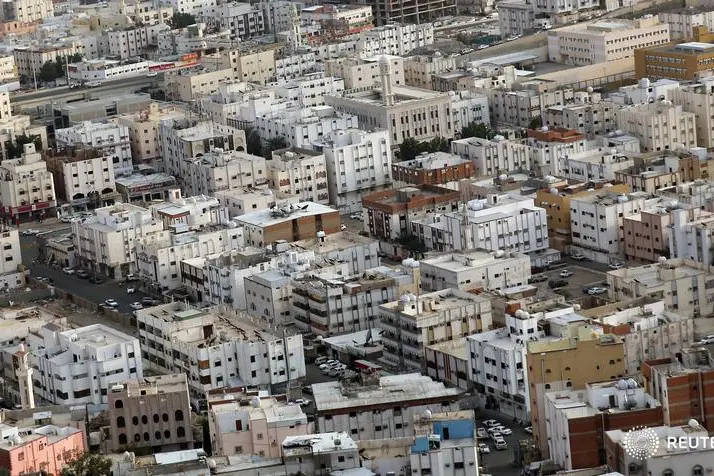PHOTO
Like many other GCC nations, the majority of Saudi Arabia’s population is below the age of 30, and with exponential economic growth over the last couple of decades, the Kingdom has witnessed a rise in the quality of living. From skyscrapers in the bustling capital of Riyadh to major projects in the cultural city of Jeddah, the Kingdom has embarked on a journey of modernization and empowerment for its residents.
The ambitious young population and increasing quality of living has led to a spike in homeownership rates in the Kingdom which increased from 47 percent in 2017 to 62 percent at the end of 2019. Now more residents are opting to buy a house rather than renting one, with homeownership rates set to exceed 70 percent by 2030.
In the wake of the COVID-19 outbreak, as the global economy struggles to keep afloat, governments have rapidly implemented unprecedented measures to contain the spread of the novel coronavirus, while mitigating the financial impact of the pandemic. One of the relief measures includes reducing lending rates to encourage borrowing and stimulate consumer spending. This allows consumers to finance everything from daily household expenses to important milestones such as buying a home or car, at very low rates. Achieving these milestones is an important aspiration for Saudi citizens and imperative to the Saudi Vision 2030.
However, the COVID-19 outbreak has cast a shadow of uncertainty over the future. Businesses have begun to see a decline in demand, albeit temporary, and authorities started to cut costs with unparalleled measures to counter the liquidity crunch they face due to the outbreak. While the government has brought in some prudent support packages to stimulate the economy and the impact of COVID-19 is unlikely to be completely offset.
Such an economic situation can impact livelihoods of tens of thousands of citizens who rely on their monthly income in order to pay their mortgage and loan installments. As income streams seem to have tapered but liabilities remain the same, consumers in Saudi Arabia must start to look at avenues to reduce their financial burdens.
As the Chinese proverb goes, in every crisis there is opportunity. Low lending rates present one such opportunity. The Kingdom is home to the Saudi Real Estate Refinancing Company (SRC), a real estate refinancing company that is owned by the Public Investment Fund. The company recently announced a generous forbearance program which allows homeowners with mortgages in the company’s portfolio to defer their installments by a period of six months, an effort that has allowed homeowners to offset financial setbacks suffered during the pandemic and has given them breathing space to plan their future.
There has been a major focus lately on mortgage awareness to educate existing and potential homeowners about the costs and opportunities surrounding lending rates, which happen to be among the lowest at current levels, and negotiating lending rates with banks and mortgage finance companies. The magnitude of the opportunity is further strengthened by the role of refinancing in the home financing market.
Over the last two years, lending rates have dropped significant by around 100 basis points, with the SRC lowering lending rates three times in the last year to improve homeownership in the Kingdom. This means that if you took out a mortgage between 2015 and 2018, you are probably paying a lot more in monthly repayments.
To put it into context with an example, a SR1 million mortgage for a period of 25 years with 3 percent effective lending rate requires a monthly payment of SR4,742 ($1,300), whereas the same mortgage with an annual rate of 4 percent would require a monthly repayment of SR5,278. The lower rate translates to significant overall savings — more than SR160,000 in a 25-year period.
With other household expenses such as interior design and a vehicle equally important to owning a home, financial prudence shown by people in regard to their mortgages can help them fund other purchases, rather than spending unnecessarily on higher monthly payments and sacrificing other aspirations.
As lending rates are not expected to stay this low forever, fixing the rate in the form of refinancing your mortgages can be extremely rewarding, especially in the times as we face today. SRC is currently offering long term fixed rate (LTFR) mortgages that will ensure homeowners are shielded from changes in lending rates and they continue to enjoy low rate installment payments until the end of their mortgage tenor. LTFR offers peace of mind to homeowners with lower monthly installments and enormous savings throughout the mortgage tenor.
In these unprecedented times, the role of refinancing has been further amplified by the latest measures and economic backdrop giving consumers more power to negotiate with their banks for a lower rate.
These measures play into the broader picture of increasing homeownership in the Kingdom, which has been among the lowest in the region. The SRC was set up in 2017 to develop a robust secondary mortgage ecosystem in the Kingdom which in turn acts as a catalyst to help lenders house Saudi Arabia.
The government has been doing its part in giving its citizens an ecosystem where homeownership is considered a fundamental right rather than a privilege. Now is the time for people to capitalize on the opportunity and exercise their rights by refinancing and fixing their mortgage rates at the lowest rates in years.
• Fabrice Susini is CEO of the Saudi Real Estate Refinancing Company.
Copyright: Arab News © 2020 All rights reserved. Provided by SyndiGate Media Inc. (Syndigate.info).





















